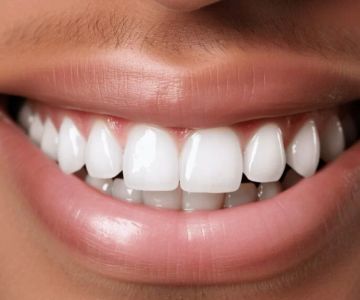Common Oral Health Issues in Older Adults
Older adults are prone to various oral health problems such as periodontitis, cavities, tooth loss, dry mouth, and gum disease. The risk of these issues increases with age. For instance, a significant percentage of older adults in the United States have moderate or severe periodontitis compared to younger individuals. Smoking, using tobacco, and consuming excessive alcohol can further elevate the risk of oral health complications.
Tips for Improving Oral Hygiene
There are several steps older adults can take to improve their oral hygiene. First and foremost, they should avoid smoking and chewing tobacco. Chewing sugarless candy or gum containing xylitol can stimulate saliva production, especially if they experience dry mouth symptoms. Drinking plenty of water is essential for overall oral health. It helps to keep the mouth moist and reduces the risk of dryness-related problems. For those with diabetes, managing the condition effectively can lower the risk of oral health complications. Regular dental visits, at least once a year, are crucial for early detection and treatment of any issues. Dentures should be cleaned daily to prevent fungal infections. If needed, seeking assistance for brushing and flossing can be beneficial.
Specific Problems and Their Causes
Advancing age can bring about changes in oral health. Darkened teeth may occur due to changes in dentin and a lifetime of consuming staining substances. Dry mouth can result from reduced saliva flow caused by cancer treatments, certain diseases, or medication side effects. Diminished taste sense can be attributed to aging, diseases, medications, or dentures. Root exposure and gum disease are also common problems in older adults, often caused by plaque, poor diet, and certain health conditions. Uneven teeth alignment can happen when missing teeth are not replaced. Denture-induced stomatitis and thrush can be caused by ill-fitting dentures, poor hygiene, or underlying health issues.
Oral Hygiene Practices
Daily oral hygiene practices for seniors include brushing teeth twice a day with fluoride toothpaste, flossing, rinsing with an antibacterial mouthwash, and visiting the dentist regularly. Antibacterial mouth rinses can help reduce bacteria that cause plaque and gum disease. During a dental exam, the dentist will check various aspects of the mouth, including teeth, gums, bite, and inner surfaces for any signs of problems or diseases.
Financial Aid for Dental Care
If older adults have difficulty affording dental care, many dentists offer reduced-fee services through dental society-sponsored assistance programs. Information about these programs can be obtained by calling the local dental society or checking the local phone book, the internet, or other relevant sources.
Oral Health and Cognitive Function
Studies have shown that tooth loss in older adults is associated with a higher risk of developing cognitive impairment and dementia. Therefore, maintaining good oral hygiene and preventing tooth loss may have implications for overall brain health.
Managing Common Dental Problems
Two common dental problems faced by older adults are sensitive teeth and dry mouth. Sensitive teeth can be caused by gum shrinkage or teeth grinding, and a mouth guard may be needed at night. Dry mouth can be a side effect of many medications and is linked to various health conditions. It's important to consult a dentist to determine the cause and find appropriate solutions. Before brushing, rinsing with plain water can dislodge food particles. After brushing, using an alcohol-free mouthwash with fluoride can help protect against tooth decay. Brushing at least twice a day for at least two minutes each time with a toothpaste containing fluoride is recommended. Flossing, preferably after meals, can reduce bacteria buildup in the mouth.
In conclusion, maintaining good oral hygiene is of utmost importance for older adults. By following the tips and advice provided in this article, they can significantly improve their oral health, reduce the risk of common oral problems, and potentially protect against other serious health issues. Regular dental check-ups, proper oral hygiene practices, and addressing specific problems promptly are key to ensuring a healthy mouth and a better quality of life in old age.

 Westgate Dental Arts
Westgate Dental Arts Coventry Family Dental
Coventry Family Dental Familia Dental
Familia Dental Dr. Daniel S. Fife, DDS
Dr. Daniel S. Fife, DDS Dentistry At Suburban Square: Michael I. Wollock, DMD
Dentistry At Suburban Square: Michael I. Wollock, DMD Comfort Care Dental
Comfort Care Dental The Importance of Oral Health Education During Pregnancy for a Healthy Pregnancy
The Importance of Oral Health Education During Pregnancy for a Healthy Pregnancy Why Skipping Dental Checkups Can Lead to Bigger Oral Health Problems
Why Skipping Dental Checkups Can Lead to Bigger Oral Health Problems Advantages of Porcelain Dental Restorations
Advantages of Porcelain Dental Restorations Best Tips for Brushing Your Teeth Properly for Healthy Gums: Essential Techniques for Oral Health
Best Tips for Brushing Your Teeth Properly for Healthy Gums: Essential Techniques for Oral Health How Can Diabetes Cause Tooth and Gum Problems? Preventing and Managing Oral Health Issues
How Can Diabetes Cause Tooth and Gum Problems? Preventing and Managing Oral Health Issues Healthy Habits for Promoting Good Oral Health and Hygiene: Tips for a Healthy Smile
Healthy Habits for Promoting Good Oral Health and Hygiene: Tips for a Healthy Smile